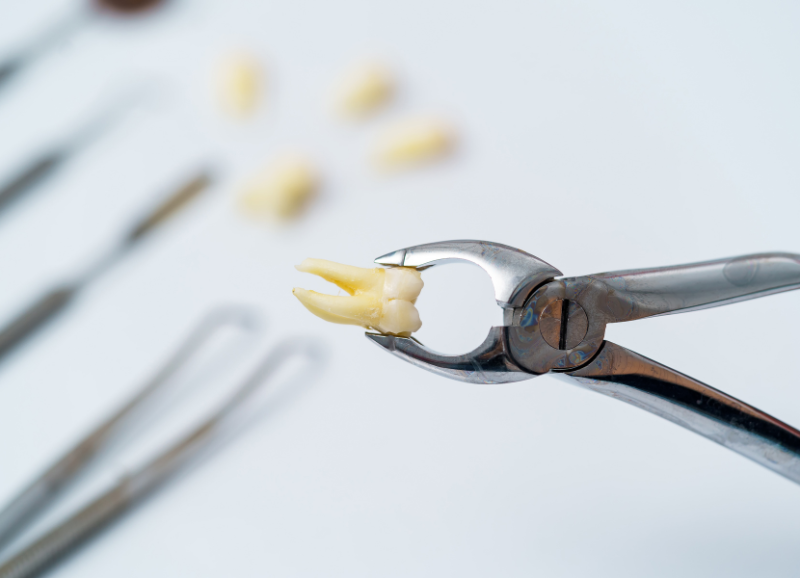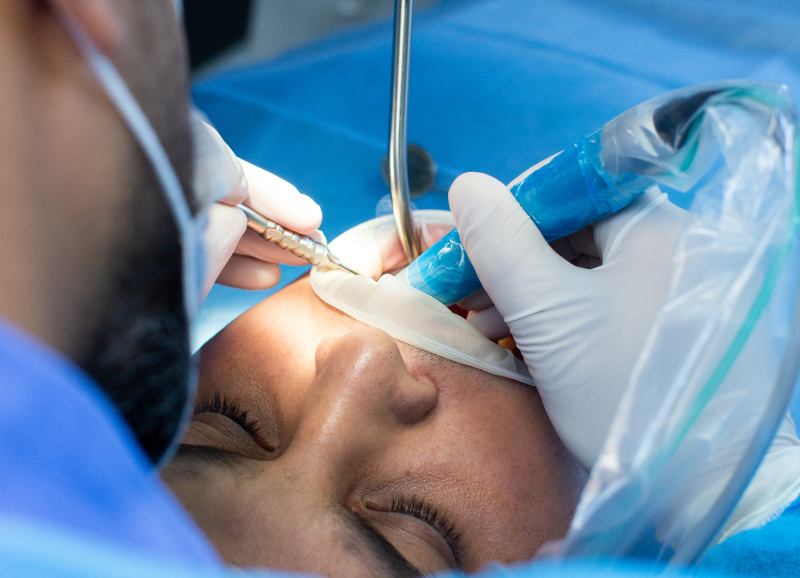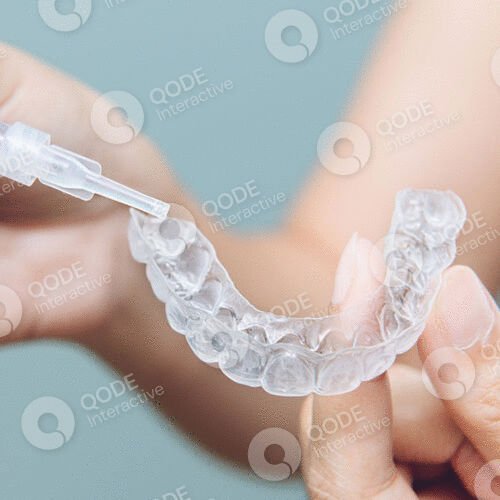Are You Worried About Oral Surgery?
Trust Our Skilled Team for Safe, Precise Procedures and a Smooth Recovery.

Common Signs You May Need Oral Surgery
Taking care of your mouth after oral surgery is essential to ensure proper healing, avoid infection, and reduce discomfort.
Whether you've had a tooth extracted, a cyst removed, or another surgical procedure, following your post-op instructions will speed up recovery and help prevent complications.
Here are 5 essential steps to follow:

Persistent Tooth or Jaw Pain
Impacted or Partially Erupted Wisdom Teeth
Jaw Misalignment or Difficulty Chewing
Infected or Failed Root Canal
Bone Loss or Gum Recession Before Implants
Did You Know?
Here at Dental Health, our certified surgeons use the latest technology to deliver expert care in a modern and welcoming clinic.

Wisdom Tooth Extraction
Wisdom teeth usually appear between ages 17 and 25, but they often don’t have enough room to grow properly.
This can lead to impaction, pain, swelling, infections, or pressure on nearby teeth. In some cases, they can even cause cysts or jawbone damage.
Removing wisdom teeth — especially before they cause problems — is a safe and preventive solution that protects your long-term oral health.
The procedure is commonly done under local or general anesthesia, with a relatively quick recovery.
If you're experiencing discomfort or your dentist notices early signs of trouble, extracting your wisdom teeth can help avoid more serious complications in the future.




Root-End Surgery
When a root canal treatment doesn't fully resolve an infection at the tip of a tooth’s root, an apicoectomy may be necessary.
This minor surgical procedure involves accessing the root through the gum, removing the infected tissue and the very tip of the root, and sealing it to prevent further issues.
Apicoectomy helps save teeth that would otherwise need to be extracted and is often the last step to preserve a natural tooth after endodontic treatment has failed. It’s precise, effective, and performed under local anesthesia for a comfortable experience.
Book Your Free Consultation Now!
What Happens If I Don’t Remove My Wisdom Teeth?
Pain and Swelling
Pressure from impacted wisdom teeth can cause more than just occasional discomfort — it can lead to persistent jaw pain, frequent headaches, and noticeable swelling in the gums or face. As these teeth push against surrounding structures, they create tension in the jaw muscles and joints, often radiating pain to other areas like the temples, ears, or neck. The pressure can also inflame the surrounding gum tissue, making it red, tender, and swollen, especially near the back of the mouth. In more severe cases, this buildup of pressure and inflammation can interfere with chewing, speaking, or even opening your mouth fully. If left untreated, these symptoms may worsen over time and increase the risk of infection, abscess formation, or damage to adjacent teeth and bone.
Infections
Partially erupted wisdom teeth — teeth that break through the gum only partially — often create small flaps or pockets of gum tissue around them. These pockets can trap food particles, bacteria, and plaque, creating an ideal environment for infection. Because the area is so far back in the mouth and hard to clean properly with a toothbrush or floss, bacteria can easily multiply without being removed. This can lead to pericoronitis, a painful gum infection that causes swelling, redness, bad breath, and even difficulty opening the mouth. In more serious cases, the trapped bacteria can cause abscesses — pus-filled infections that may spread to nearby tissue or bone, resulting in severe pain, fever, and the need for emergency treatment. Regular dental checkups and timely extraction can prevent these complications before they become serious.
Crowding or Damage to Nearby Teeth
When there isn’t enough space in the jaw for wisdom teeth to grow properly, they often push against neighboring molars as they try to erupt. This pressure can gradually force the adjacent teeth out of alignment, leading to crowding — especially in the lower front teeth. Such crowding can undo years of orthodontic treatment or affect your bite, making chewing less efficient and increasing wear on certain teeth. In some cases, impacted wisdom teeth press directly into the roots of nearby molars, causing structural damage, root resorption, or even the loss of otherwise healthy teeth. This type of damage can be both painful and costly to repair, which is why early evaluation and removal of wisdom teeth is often recommended to preserve the overall alignment and health of your smile.
Cysts or Jawbone Damage
In some cases, impacted wisdom teeth can lead to the development of cysts — fluid-filled sacs that form around the tooth’s undeveloped crown. While cysts are typically benign, if left untreated, they can grow over time and begin to erode the surrounding jawbone, displace nearby teeth, or damage the roots. In more severe situations, the cyst may press against or harm important structures like nerves in the jaw, leading to numbness, tingling, or chronic discomfort in the lips, chin, or gums. In rare instances, these cysts can even develop into more serious tumors that require complex surgical treatment. Early detection through dental X-rays and timely wisdom tooth removal are key in preventing long-term damage to the bone and surrounding tissues.
Stomatology
Before and After
Lorem ipsum dolor sit amet, consectetur adipiscing elit. Ut wisi enim ad minim veniam, quis laore nostrud exation.
BOOK APPOINTMENT

Stomatology
Our Gallery











